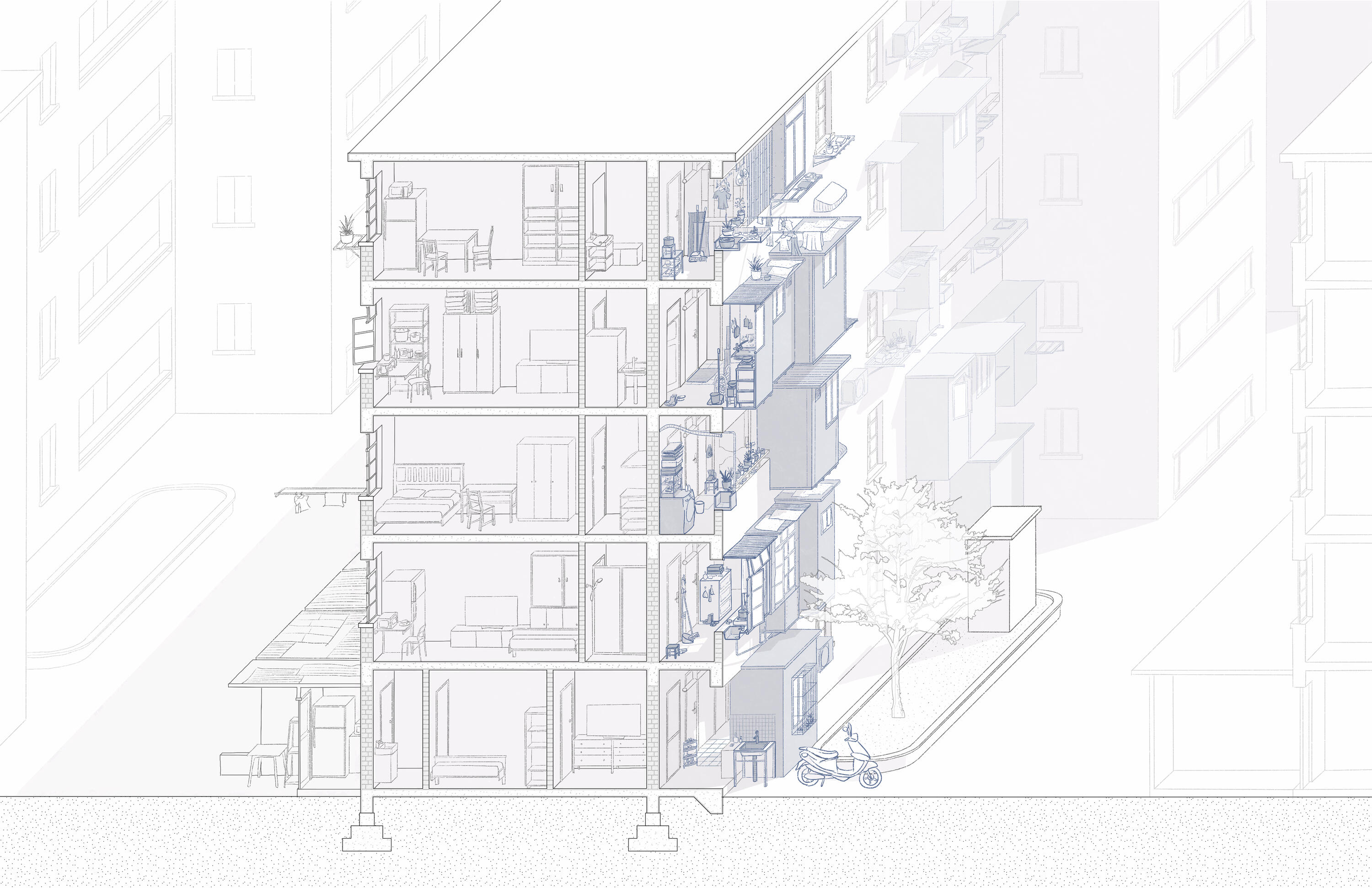Claiming a piece of sky

Abstract:
When
you
wander
into
a
workers’
village
on
the
outskirts
of
Shanghai,
China,
you
would
see
a
very
unique
type
of
urban
vernacular:
suspended
additions
hanging
on
the
facade.
They
are
the
inhabitants’
attempt
to
transform
the
adverse
spatial
situations
of
the
socialist-style
workers’
village
and
to
create
a
viable
form
of
life
in
contemporary
Shanghai
by
privatizing
the
public
space,
even
the
one
in
the
sky.
Through
texts,
maps,
photographs
and
illustrations,
this
thesis
explores,
documents
and
develops
an
understanding
of
both
the
mechanisms
and
physical
characteristics
of
those
urban
vernacular
spaces,
to
showcase
inhabitants’
ingenuity
in
creating
innovative
spatial
praxes
as
well
as
their
political
agenda
in
seeking
a
voice
within
the
state
controlled
renewal
process.
It
is
in
this
context
that
this
thesis
seeks
opportunities
to
re-imagine
a
inhabitants-led
renewal
in
Tianlin
second
villages
and
asks:
how
can
architects
turn
the
political
and
spatial
agency
of
inhabitants
into
constructive
catalysts
and
to
empower
the
inhabitants
to
design,
construct
and
modify
their
unique
extension
to
suit
their
current
and
future
spatial
needs.
In
addition,
how
can
the
design
build
upon
the
existing
innovative
spatial
praxes
and
further
encourage
corridor
social
interaction
to
dissolve
social
barriers
between
different
groups.
This
thesis
proposes
to
modify
the
existing
two-stage
consultation
renewal
process
into
a
two-stage
co-governance
renewal
model,
influenced
by
the
open
building
theories
of
the
Dutch
architect
John
Harbraken.
As
a
first
stage,
“the
support”
entails
establishing
a
regulatory
framework
that
is
negotiated
and
communicated
between
residents
and
authority
.
In
the
second
stage,
“the
infill”,
each
inhabitant
can
fully
engage
in
the
design
and
construction
of
their
own
addition
within
the
framework
established
in
the
first
stage.
Th
ere
are
two
systems
that
facilitate
the
infill
process:
the
“we-design”
toolkit
and
the
“we-build”
kit-of-parts.
Th
e
“we-design”
toolkit
is
an
assemblage
of
physical
modular
blocks
designed
to
unlock
the
fine-grain
spatial
agency
of
autonomous
individuals.
Similar
to
an
Ikea
furniture,
the
“we-build”
kit-of-parts features
an
easy
assembly
and
disassembly
process
that
allows
the
inhabitants
to
claim
a
piece
of
sky
by
themselves.
The examining committee is as follows:
Supervisor:
Adrian
Blackwell
Committee
member:
Marie-Paule
Macdonald
Internal-external
reader:
Sifei
Mo
External:
Tairan
An
The
defence
examination
will
take
place:
Thursday,
December
15,
2022,
4:00
p.m.
This
will
be
taking
place
online
via
Teams.
Please
contact the
grad
office or
the
student
for
the
Teams
link.
The
committee
has
been
approved
as
authorized
by
the
Graduate
Studies
Committee.
A
copy
of
the
thesis
is
available
for
perusal
in
ARC
2106A.